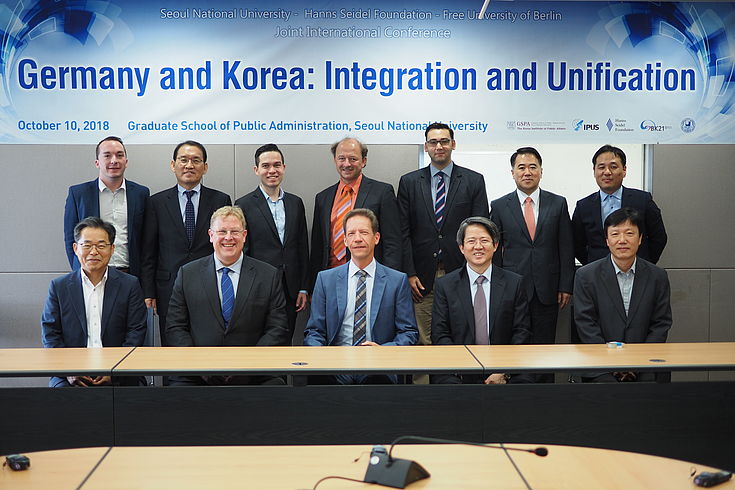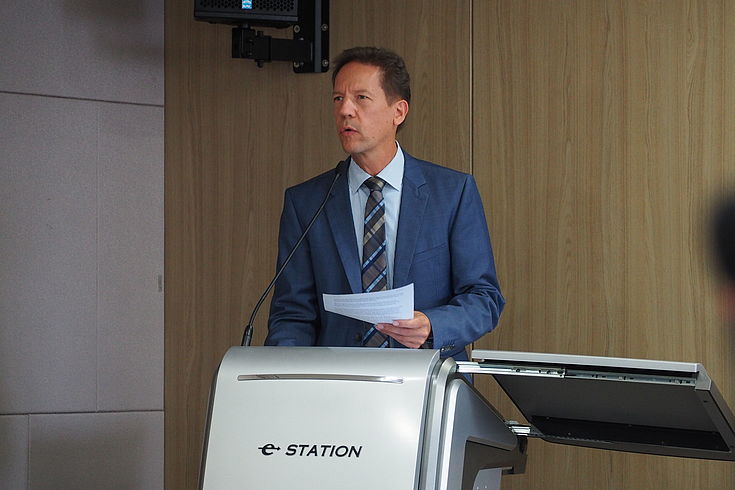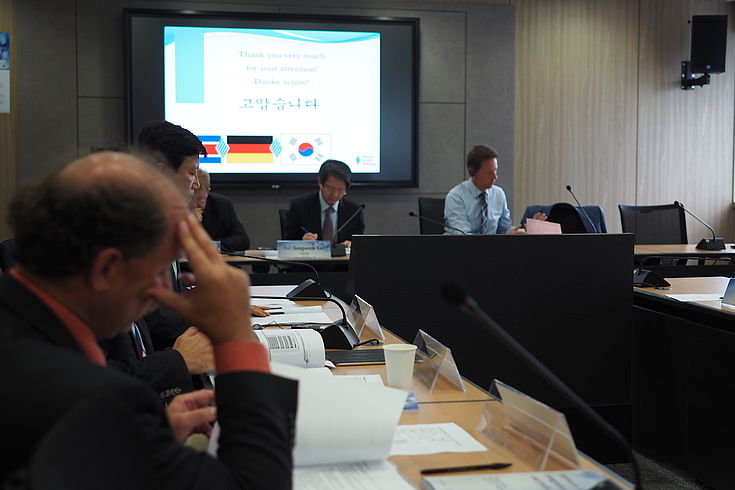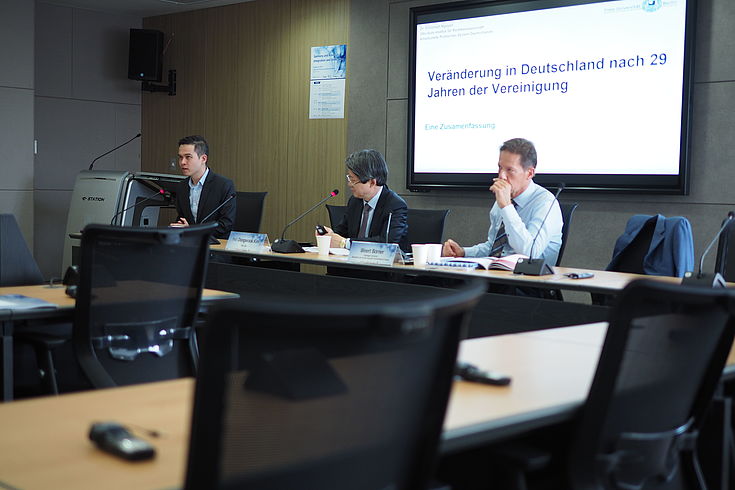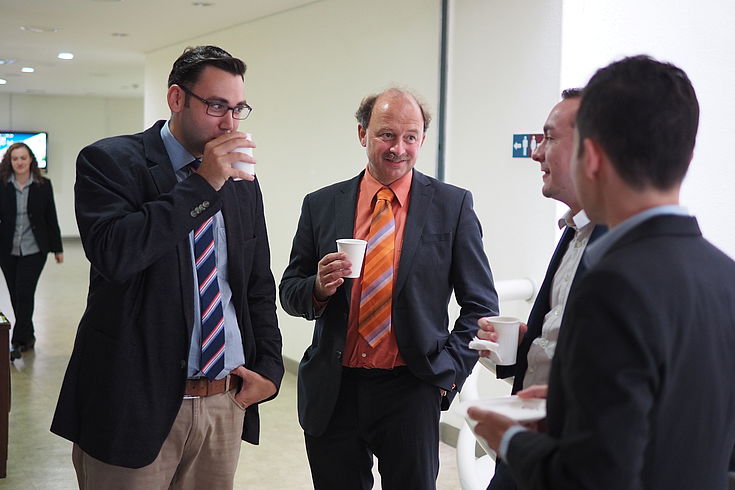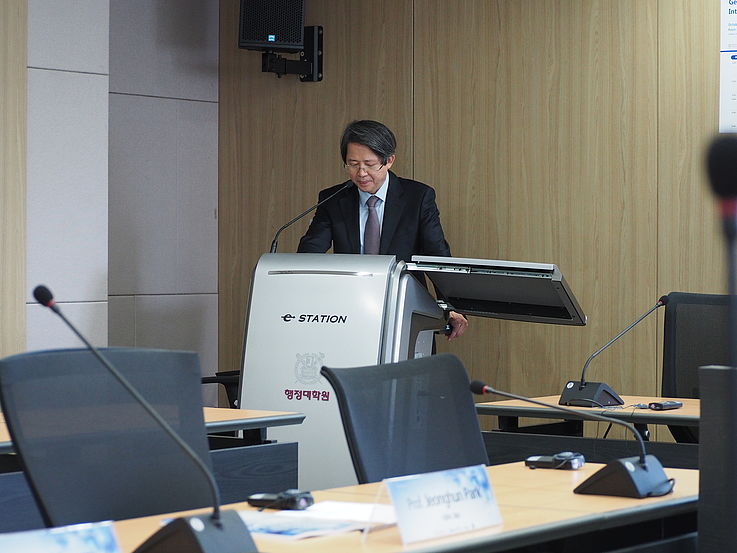Conference
Before, During and After German Reunification
Group photo
HSS
“Germany and Korea: Integration and Unification” was the title of a conference held at the Seoul National University on October 10th. At the conference, experts from both Korea and Germany came together to discuss the German experiences before, during and after reunification and their implications for the recent situation in Korea. Even the changes in the political and social system in North Korea in recent years were part of the discourse.
Weert Börner from the German Embassy in Seoul giving congratulatory address
HSS
The reunification of Germany was not something that was expected and almost happened over night, which is possible even in Korea – this is what Prof. Lee Seungjong and Prof. Kim Dongwook from the SNU emphasized in their welcoming speeches. Dr. Bernhard Seliger also mentioned that the division of Germany is something that younger German people these days have a hard time relating to, which makes it even more important to remind of the benefits it brought for Germany and Europe. But although the unification was very beneficial for Germany, the big changes and unfamiliarity the citizens faced at that time should not be disregarded. According to Weert Börner, resident representative of the German embassy, he is usually asked many questions about what happened after the reunification in 1990, but he pointed out that the process leading to the unification is just as important.
View on the conference panel
HSS
In recent years, many reforms and changes happened in North Korea, which had a great impact on the political and social systems in the country. Especially the new focus on the economy that was instituted by Kim Jong Un and the emergence of a system similar to a market economy was something that Dr. Bernhard Seliger informed about and viewed positively. But he also indicated that still a lot of dialogue and reforms are needed in order to really develop North Korea’s economy and open up the country.
Dr. Christoph Nguyen from the Free University of Berlin during his presentation
HSS
An insight into how Germany tackled the challenges the unification brought along, including the long-term effects on the country, was given by Dr. Cristoph Nguyen from the Free University of Berlin. He pointed out that the reunification is an ongoing process that did not stop with the fall of the wall in 1990. There are still distinct differences between West and East Germany and citizens living in former East Germany are still facing challenges like demographical changes and lower income compared to Western Germany. However, it was emphasized that overall, the unification was a win for Germany and that it unquestionably was better than the alternative of keeping it two different countries.
Danny Chahbouni (Point Alpha Foundation), Robert Lebegern (German-German Museum Mödlareuth), Felix Glenk (HSF) and Dr. Christoph Nguyen (Free University of Berlin) conversing and discussing during the break
HSS
Providing real and current information on the recent situation in North Korea, a study conducted about the town Mundeok in the DPRK by Dr. Ahn Jiho from the SNU and Felix Glenk from the HSF was presented. One of the conclusions was that the changes that happened in the last 30 years and the market-based development had huge impacts on the local administration and debatable if the North Korean government will be able to keep control of the markets. Moreover, the understanding of a market-economy, democracy and administration is lacking and quite different from the one we have in most developed countries which makes North Korea different from former East Germany in several aspects. This is important to keep in mind when trying to draw parallels between the unification in Germany and Korea.
But nevertheless, the conference was an opportunity for exchange of opinions and experiences about the topic of reunification, and hopefully provided many helpful insights for the Koreans, who still have this process ahead of them.

